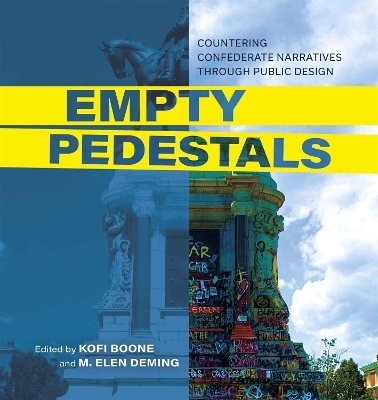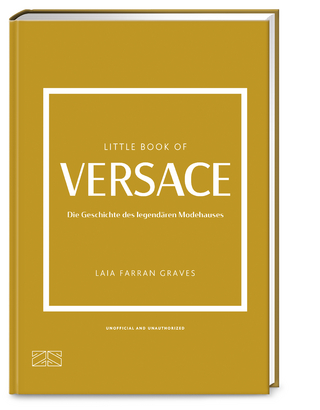
Empty Pedestals
Countering Confederate Narratives through Public Design
Seiten
2024
Louisiana State University Press (Verlag)
978-0-8071-8156-0 (ISBN)
Louisiana State University Press (Verlag)
978-0-8071-8156-0 (ISBN)
- Lieferbar (Termin unbekannt)
- Versandkostenfrei innerhalb Deutschlands
- Auch auf Rechnung
- Verfügbarkeit in der Filiale vor Ort prüfen
- Artikel merken
Uses a design perspective to explore how monuments to the Confederacy speak to regionalism, racist political agendas, and residual collective pain. Above all, Empty Pedestals lifts up the voices of people who have confronted hateful narratives and devised strategies that stand up to, and apart from, old mythologies.
Empty Pedestals uses a design perspective to explore how monuments to the Confederacy speak to regionalism, racist political agendas, and residual collective pain. Many designers and artists working in the public realm have created innovative projects to replace Confederate memorials, contextualize those that still stand, and foster new conversations about history, race, and justice in America. By drawing lessons from these initiatives and considering the questions that remain, editors Kofi Boone and M. Elen Deming hope to assist educators and students in combating endemic prejudice and other forms of social division.
For more than a century, the endurance of Confederate monuments, street names, and other memorials in the United States has permitted proponents to establish false and oppressive arguments in defense of so-called historic preservation. The continued presence of these objects maintains symbolic forms of systemic injustice, exclusionary policies and practices, and erasure of the stories, memories, and values of marginalized populations in the American South. While many of these monuments have been taken down since 2017, they account for only a small percentage of the overall number of Confederate relics on public display.
Boone and Deming, along with the volume's fourteen contributors, strive to elevate novel frameworks and shared solutions for the issues that continue to trouble American cultural landscapes. Above all, Empty Pedestals lifts up the voices of people who have confronted hateful narratives and devised strategies that stand up to, and apart from, old mythologies. If and when oppressive symbols such as Confederate monuments are permanently eliminated, design alternatives such as those presented here may offer healing in shared spaces, healthier social discourse, and stronger community resilience.
Empty Pedestals uses a design perspective to explore how monuments to the Confederacy speak to regionalism, racist political agendas, and residual collective pain. Many designers and artists working in the public realm have created innovative projects to replace Confederate memorials, contextualize those that still stand, and foster new conversations about history, race, and justice in America. By drawing lessons from these initiatives and considering the questions that remain, editors Kofi Boone and M. Elen Deming hope to assist educators and students in combating endemic prejudice and other forms of social division.
For more than a century, the endurance of Confederate monuments, street names, and other memorials in the United States has permitted proponents to establish false and oppressive arguments in defense of so-called historic preservation. The continued presence of these objects maintains symbolic forms of systemic injustice, exclusionary policies and practices, and erasure of the stories, memories, and values of marginalized populations in the American South. While many of these monuments have been taken down since 2017, they account for only a small percentage of the overall number of Confederate relics on public display.
Boone and Deming, along with the volume's fourteen contributors, strive to elevate novel frameworks and shared solutions for the issues that continue to trouble American cultural landscapes. Above all, Empty Pedestals lifts up the voices of people who have confronted hateful narratives and devised strategies that stand up to, and apart from, old mythologies. If and when oppressive symbols such as Confederate monuments are permanently eliminated, design alternatives such as those presented here may offer healing in shared spaces, healthier social discourse, and stronger community resilience.
Kofi Boone is the Joseph D. Moore Distinguished Professor and University Faculty Scholar in the Department of Landscape Architecture and Environmental Planning at North Carolina State University. He works in the overlap between landscape architecture and environmental justice, with specializations in democratic design and cultural landscapes. M. Elen Deming is professor of landscape architecture and director of the Doctor of Design program at the College of Design at North Carolina State University. She is an essayist and editor who considers how society shapes, and is in turn shaped by, its cultural landscapes.
| Erscheinungsdatum | 17.05.2024 |
|---|---|
| Reihe/Serie | Reading the American Landscape |
| Zusatzinfo | 102 color images |
| Verlagsort | Baton Rouge |
| Sprache | englisch |
| Maße | 216 x 229 mm |
| Gewicht | 272 g |
| Themenwelt | Kunst / Musik / Theater ► Design / Innenarchitektur / Mode |
| Kunst / Musik / Theater ► Kunstgeschichte / Kunststile | |
| Technik ► Architektur | |
| ISBN-10 | 0-8071-8156-0 / 0807181560 |
| ISBN-13 | 978-0-8071-8156-0 / 9780807181560 |
| Zustand | Neuware |
| Informationen gemäß Produktsicherheitsverordnung (GPSR) | |
| Haben Sie eine Frage zum Produkt? |
Mehr entdecken
aus dem Bereich
aus dem Bereich
Die Geschichte des legendären Modehauses
Buch | Hardcover (2024)
ZS - ein Verlag der Edel Verlagsgruppe
15,00 €


